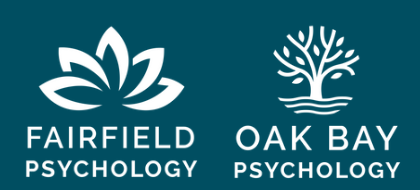
My Journey to Emotion-Focused Family Therapy (EFFT)
September 2024 > Blog Post > My Journey to Emotion-Focused Family Therapy (EFFT) > by Tory Vitaly, MSW, RSW
“Parents and caregivers desperately want to help their loved one to heal. To feel better. To live. And they come to professionals like myself, and my talented colleagues, hoping that we can offer something that would make their suffering go away.”
Blog post by Tory Vitaly, MSW, RSW, at Fairfield Psychology.
Read more below...
How Emotion-Focused Family Therapy (EFFT) can support you, your family and mental health and well-being
My Background
I have been a social worker for 21 years and a counsellor for the past 12 years.
In that time, I have been fortunate to be exposed to various different therapy and treatment modalities in mental health.
I have had the pleasure of working with hundreds of families in various settings from community-based organizations to inpatient hospital settings to private practice.
I have worked with families with loved ones of all ages struggling with:
depression
anxiety
emotion dysregulation
self-harm
suicidal ideation
substance use and
eating disorders.
A Common Theme
One theme has been common in almost every family I have worked with.
Parents/caregivers desperately want to help their loved one to heal. To feel better. To live.
And they come to professionals like myself, and my talented colleagues, hoping that we can offer something that would make their suffering go away.
My Personal Journey
I am also a mother of two beautiful daughters who are now adults. I have experienced different levels of distress as a parent related to my daughters' emotional well-being and physical health. I have felt helpless at times too.
Up until 2015, I felt almost useless at times as a counsellor. I had taken all these trainings that offered some comfort or relief in the moment for caregivers, but nothing lasted. Nothing helped to make any big shifts for these families.
In 2015, while working in a new eating disorder clinic, I had the opportunity to attend an Emotion-Focused Family Therapy Caregiver workshop as a clinician observer.
For two days, I sat silently in a room full of 20+ caregivers watching them shift from feeling hopeLESS to hopeFUL.
They shared stories of sadness, fear, and frustration, but slowly over the two days (just two days!), they began to share stories of hope and empowerment as they immediately tried using some of the tools offered in the workshop.
The parents who initially sat in their seats looking tired and afraid, were smiling, laughing, and sitting up taller by the end of the second day.
I knew instantly that EFFT was for me.
EFFT was the missing piece in all of the education and training I have done.
I finally had something practical that I could offer to parents to help relieve their suffering and that of their loved ones, and further leading to healing within their families.
Fast Forward to Today
Since 2016, after my first EFFT training, I have been using EFFT with every single caregiver I work with.
I have worked individually with parents as well as offering the Caregiver Workshop in various forms.
I have had the pleasure of witnessing magical shifts in families. Watching loved ones' mental health improve as they no longer need a maladaptive coping strategy to deal with their painful emotions.
I have witnessed moms and dads break through their emotional blocks caused by fear and burnout.
Family patterns, in which emotions were just swept under the rug, were shifting and emotions being talked about and processed.
As a mother, I have felt more confident in my ability to support my daughters.
You'd think that as a counsellor, with all the tools in my toolkit, I would be able to implement those easily.
Well, it is very different when it is your own child.
When feeling at my wits end, and frustration was at an all time high, and I could not understand why my daughter wouldn't just do this or that to make her life easier or suffering less.
I was stuck.
Flooded with my own emotions because of X, Y, and Z. I couldn't think.
But then I would take a few deep breaths and remember to use the emotion coaching script I learned in 2015.
Just like that, both my daughter and I were calmer, more settled versus storming off to our own rooms and not talking for the rest of the evening. And wouldn't you know it, she made the shifts she needed to in order to reduce whatever the struggle she was having in the first place.
Conclusion
EFFT is a therapeutic model that is based on the belief in the healing power of families.
It teaches parents/caregivers to be their loved ones' emotion coach.
It gives caregivers the tools to help understand emotion basics, then a script to help validate and support their loved one. Emotions are no longer feared by loved ones, or caregivers.
They learn that emotions are simply the body's alarm bell.
Loved ones learn to cope with their emotions in a more manageable way and maladaptive coping behaviours are reduced.
EFFT also offers caregivers ways to process their own blocks or fears that get in the way of doing something different.
Additionally, EFFT provides caregivers ways to heal emotional ruptures within their relationship with loved ones.
____
Written by Tory Vitaly, MSW, Registered Social Worker (RSW)
Tory is an Advanced Therapist, Supervisor and Trainer in Emotion-Focused Family Therapy.
She is accepting new counselling clients for families, parents and caregivers at Fairfield Psychology.
Fairfield Psychology offers community-based psychologist and counselling services in Victoria, BC.
To learn more or book online with Tory, please click here.
“Emotion-Focused Family Therapy (EFFT) was the missing piece in all of the education and training I have done. I finally had something practical that I could offer to parents to help relieve their suffering and that of their loved ones, and further leading to healing within their families.”
— Tory Vitaly, MSW, Registered Social Worker (RSW).
Tory is based at Fairfield Psychology, a community-based mental health clinic offering psychologist and counselling services in Victoria, BC.
Get in touch.
If you have questions or are interested in booking a counselling session, please call us at 250-507-8363 (Monday to Friday), book online, email us at contact@fairfieldpsychology.com or fill out the form.


